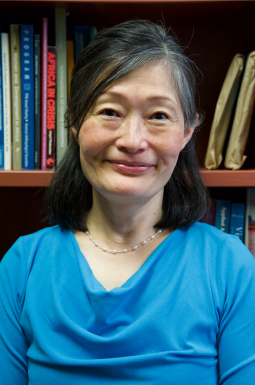-

Dr. Masako Fujita coauthors published article
Associate Professor of Anthropology Dr. Masako Fujita recently coauthored Does the immune system of milk increase activity for infants experiencing infectious disease episodes in Kilimanjaro, Tanzania? which appears in the American Journal of Human Biology. Read the article here: Does the immune system of milk increase activity for infants experiencing infectious disease episodes in Kilimanjaro, […]
-
Professor Emeritus Dr. William Lovis named AAAS Fellow, selected for Steering Committee
The Department of Anthropology is pleased to announce that Professor Emeritus Dr. William Lovis has been recognized as a fellow of the American Association for the Advancement of Science, or AAAS. Dr. Lovis was recognized as a fellow of the AAAS earlier this year, along with four other Michigan State University researchers. Lovis was selected […]
-
Call for Applications: Alumni & Friends Fund for Archeology
The Department of Anthropology encourages all archeology students to apply for The Alumni & Friends Fund for Archeology. This fund is intended to support MSU Department of Anthropology archaeology students who have demonstrated the capacity to achieve educational and professional goals, the motivation to achieve these goals, and the initiative to seek opportunities to further […]
-
Call for Applications: The William A. Lovis Research Fund in Environmental Archaeology
The Department of Anthropology encourages all graduate students to apply for The William A. Lovis Research Fund in Environmental Archaeology. This fund is intended to support interdisciplinary environmental archaeological research bridging anthropological archaeology and the natural, physical, biological and earth sciences. It is designed to underwrite and enhance the work of graduate students who investigate […]
-
Call for Applications: Lynne Goldstein Fellowship Fund
The Lynne Goldstein Fellowship Fund is open to graduate students enrolled in the MSU Department of Anthropology, with preference given to those students who have participated in the Campus Archaeology Program. Funds are intended to assist students doing their dissertation research, which does not need to be linked to Campus Archaeology. How to apply: Application should […]
-
Call for Applications: The Altimare Professional Development Scholarship
The Altimare Professional Development Scholarship is intended to support graduate students enrolled in the MSU Department of Anthropology to gain practical skills, training, certification, professional development and/or qualitative data software experience, contributing to tangible and recognized competencies by future employers and aid the student in being a competitive applicant for non-academic jobs post-graduation. Examples include: conference training […]
-
Call for Applications: The Whiteford Cultural Anthropology Field Work Scholarship
The Whiteford Cultural Anthropology Field Work Scholarship is awarded to cultural anthropology graduate students in the MSU Department of Anthropology with preference given to students conducting research in Latin America. This $2,000 award is intended to assist students doing their dissertation field work by helping cover key associated costs, such as transportation and lodging. Eligibility: Must be […]
-
Speaker series: Dr. Eric J. Montgomery “Spirits, Ancestors, and Taboo: Divination as Ethnographic Method”
Join the Anthropology Department for a lecture series, this time with Dr. Eric J. Montgomery! Montgomery will host the lecture “Spirits, Ancestors, and Taboo: Divination as Ethnographic Method” on March 13 from 3:30 P.M. – 4:30 P.M. in McDonel Hall C103. Zoom option: https://msu.zoom.us/j/99146869800 Passcode: ANP@MSU Divination has long fascinated ethnographers, and the amount of […]
-
Memorial for MSU Anthropology Alumnus Herb Whittier (1941-2021)
MSU Department of Anthropology alumnus Herbert (Herb) Whittier, Ph.D. died June 6, 2021 in East Lansing, Michigan. Whittier studied Anthropology at University of South Florida (B.A. 1963), and Florida State University (B.S. 1965) where he also met his wife and research collaborator Patricia (Pat) Ruth Jenks, and later received a Ph.D. in Anthropology at MSU […]
-
Ph.D. Student Priyanka Jayakodi wins Dr. Delia Koo Global Student Scholarship and 3rd place in Shao Chang Lee Scholarship Fund Best Paper Competition
The Department of Anthropology is pleased to announce that Ph.D. student Priyanka Jayakodi has won two awards from the MSU Asian Studies Center this past year: the Dr. Delia Koo Global Student Scholarship; and 3rd place in the Shao Chang Lee Scholarship Fund Best Paper Competition. The Dr. Delia Koo Global Scholarship is administered by […]